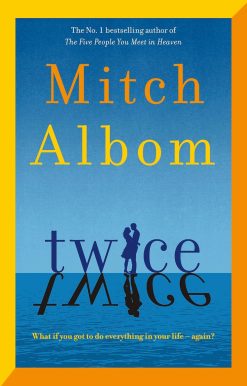The Readymade Thief: A Novel
16.00 JOD
Please allow 2 – 5 weeks for delivery of this item
Add to Gift RegistryDescription
“The most must-read of all must-reads.” —Marie Claire“A kickass debut from start to finish.” —Colson Whitehead, author of The Underground RailroadLee Cuddy is seventeen years old and on the run. Betrayed by her family after taking the fall for a friend, Lee finds refuge in a cooperative of runaways holed up in an abandoned building they call the Crystal Castle. But the façade of the Castle conceals a far more sinister agenda, one hatched by a society of fanatical men set on decoding a series of powerful secrets hidden in plain sight. And they believe Lee holds the key to it all. Aided by Tomi, a young hacker and artist with whom she has struck a wary alliance, Lee escapes into the unmapped corners of the city—empty aquariums, deserted motels, patrolled museums, and even the homes of vacationing families. But the deeper she goes underground, the more tightly she finds herself bound in the strange web she’s trying to elude. Desperate and out of options, Lee steps from the shadows to face who is after her—and why. A novel of puzzles, conspiracies, secret societies, urban exploration, art history, and a singular, indomitable heroine, The Readymade Thief heralds the arrival of a spellbinding and original new talent in fiction.
Additional information
| Weight | 0.32 kg |
|---|---|
| Dimensions | 2.09 × 13.92 × 20.86 cm |
| PubliCanadation City/Country | USA |
| Author(s) | |
| Format Old` | |
| Language | |
| Pages | 384 |
| Publisher | |
| Year Published | 2018-8-7 |
| Imprint | |
| ISBN 10 | 0735221847 |
| About The Author | Augustus Rose is a novelist and screenwriter. He was born in the northern California coastal town of Bolinas, and grew up there and in San Francisco. He lives in Chicago with his wife, the novelist Nami Mun and their son, and he teaches fiction writing at the University of Chicago. |
Finalist for the 2017 Chicago Review of Books Award“Anyone who became addicted to the rolling emotions, betrayals, and violent showdowns of Breaking Bad will be seduced by Augustus Rose’s debut . . . Fiendishly intricate and relentlessly suspenseful.” —O, The Oprah Magazine“A fast-paced adventure . . . as cleverly written as it is illuminating and deeply referential, and once you start we dare you to try to put it down.”—Harper’s Bazaar“This is one of those rare books that you can recommend to anyone you know, even that person who ‘doesn’t read.’ The most must-read of all must-reads.” —Marie Claire“[An] uncanny, near sublime first novel. . . . A delight.” —BBC“First novels as rich and enchanting as Augustus Rose’s The Readymade Thief don’t come around too often, and when they do, they rarely combine secret societies, teenage runaways, and Marcel Duchamp.” —Vanity Fair“[A] viscerally and intellectually exciting novel . . . whose punning title indicates the layered complexity of this well-written text.” —Wall Street Journal“[A] coolly creepy debut.”—People“[A] strange and wonderful debut . . . wildly unpredictable, big-hearted, and always fascinating.” —The Seattle Times “A fast-paced, plot-driven novel with a resolute heroine and a lot of history . . . Readers who enjoy literary puzzles, or who are looking for something a little different, should look no farther than The Readymade Thief.”—Shelf Awareness “Complex, twisty and full of suspense.” —Daily Mail“Rewarding, like unearthing the Easter eggs in a Lynchian masterpiece.” —Murder & Mayhem“In his highly addictive and multi-faceted first novel, Augustus Rose pits an irrepressible and gritty young heroine against a sinister group of fanatics. The Readymade Thief is a kickass debut from start to finish.”—Colson Whitehead, author of The Underground Railroad“The Readymade Thief is my favorite kind of book: an improbable one. The novel is a map of things—urban exploration, secret societies, the city of Philadelphia, Marcel Duchamp, very possibly the Home Alone movies—and if those things don’t seem to fit together, well, that’s the magic of the improbable book, and the transmutation of obsessions, by energy and intellect, into something wholly new: a novel that’s unexpected, uncategorizable, unputdownable.” —Robin Sloan, author of Mr. Penumbra’s 24-Hour Bookstore“The Readymade Thief is a brilliant, suspenseful, and cinematic novel with an unforgettable heroine and a big story about art, the nature of consciousness, and all points in between. Be prepared to lose yourself in it.” —Edan Lepucki, author of California and Woman No. 17“I fell more than a little bit in love not just with Lee—the gutsy protagonist of Augustus Rose’s gorgeous debut novel, The Readymade Thief—but with the book itself. It’s a hypnotizing amalgamation of love story and mystery. I am in awe.” —Hannah Pittard, author of Listen to Me “In The Readymade Thief, Augustus Rose shows that he has one of the steadiest hands in fiction. How else to explain how effortlessly he complicates and expands the mystery at the heart of the novel, adding Marcel Duchamp, the Darknet, Urban Exploration, and a unified field theory along the way to such amazing effect. Each time I thought I had found my way to solid ground, another level opened up, and I eagerly tunneled deeper. Rose has crafted something memorable, crackling with energy, a truly wonderful tale.” —Kevin Wilson, author of The Family Fang “A rewarding novel full of pleasures and surprises. Every time I thought I knew where the story was going, it took me somewhere stranger and deeper than I could have imagined. A rich, heady mix of ideas and thrills.”—Charles Yu, author of How to Live Safely in a Science Fictional Universe“Complex on many intellectual levels, drawing heavily on theories of art history and physics, and the mystery is deep and satisfying in both its unpredictability and its culmination. The sheer scope is impressive, as are Rose's evocative descriptions of underground and abandoned places, reminiscent of David Lynch's films.” —Kirkus Reviews“A richly detailed intellectual thriller . . . Lee is an excellent character, and the many shadowy settings she travels through make for a fascinating vision of an alternate, underground Philadelphia.” —Publishers Weekly |
|
| Excerpt From Book | PROLOGUE TO make your way to the DePaul Aquarium and Museum of Natural History, on Petty Island in the middle of the Delaware River, you can drive through New Jersey and over the only bridge. But then you’ll be confronted by a CITGO guard and will either have to social-engineer your way in (and good luck with that) or be forced to turn around and go back. Better to temporarily liberate a small boat from one of the old piers on the Philly side and row the half mile across the river. Once on the island, you’ll want to avoid the large shipping lot—busy with dockworkers in the daytime and prowled at night by a security cruiser—and instead cut through the wetlands to the southern end of the island. The aquarium stands nearly solitary amid a village of bulldozed foundations, one of two preserved relics from an aborted 1960s attempt to turn the island into some sort of tourist attraction. The other is the Blizzard, a rusting megalith of a roller coaster that silhouettes the night sky. The aquarium—a long, low-slung, single- story building—hunkers in its shadow. Entry to the unguarded aquarium is straightforward. Although the front gate and the doors are chained shut, climbing the stone wall on the eastern side is not hard, and there is a loading dock around back whose steel door has been pried open at the bottom. Inside you’re free to shine your flashlight at will, letting it trail over the rows of empty tanks, some with bone-whitened coral and ersatz reef displays still intact. You can climb down into the alligator pit and crawl into old burrows or over rocks coated in a patina of dried algae. A row of life-sized plaster shark models still hangs above the entrance lobby, fins and tails cracked but otherwise complete. The fossils are gone from the Paleozoic Room, but one display remains intact: a Cambrian ocean diorama of faded plastic models—orange trilobites, green nautiluses, sea slugs, kelp, and anemones, a frozen, surreal arena of underwater plants and feverishly imagined bugs. It is in this room that Lee has spent hours, losing herself in the diorama every time she visits the derelict aquarium. She imagines that this must be what scuba diving feels like: isolated in an alien seascape. Tomi, the other member of the Philadelphia Urbex Society (membership: two), is not with her tonight, because tonight she needs to be away from Tomi and his endless talk, his name-dropping arcane art movements—Fluxus and Lettrism, Pataphysics and Situationist Psychogeography—his insatiable craving for her attention. Urban exploration is not the safest of recreations, especially not for a single female, especially a female as slight and—as Tomi once (but only once) put it—as elfin as Lee, but she feels safer here than at other sites. The sheer remoteness makes the aquarium uninhabitable by squatters, as testified by the dearth of graffiti or other vandalism. She supposes that one of the Petty Island guards could potentially come by, but it is unlikely: the aquarium is not part of CITGO property (the whole wetlands area of the island is under heavy dispute between environmentalists and local developers), and by nature security guards are incurious and lazy. Now she sits on an old wooden office chair she’s commandeered from behind the cashier’s desk, staring past the pregnancy test stick in her hand at the little plastic seascape, the broken fronds and wilted arthropods, all now faded and cracked, and thinks about the tiny thing growing inside her. Lee knows who the father is, though she has no intention of telling him. The thing inhabits some subterranean cave of her body, floating in amniotic silence, just waiting to emerge and wreak havoc on Lee’s life. All her hopes and plans—a life made by her own choices, even a chance at college—snuffed before that life can take in its first breath. Unless she snuffs the thing inside her first. That is the real question hovering before her right now, occupying space in the diorama tank, somewhere between the Wiwaxia and the Hallucigenia. The thing is thirty-three days old—she knows the exact moment of its conception—and so she doesn’t have long to decide what to do or the decision will be made for her. Lee stares into the glass tank a while longer, stares without seeing, until a single object begins to come into focus behind the field of molded prehistoric kelp: a rolled strip of paper, what can only be described as a tiny scroll, tied with a lock of what looks like human hair and propped up in the green plastic tentacles of a Cambrian anemone. Breaking one of the two cardinal rules of the Urbex Society—Take Nothing, Leave Nothing—Lee reaches in through the back of the tank and plucks out the scroll. The hair, black and long, snaps when she pulls on it, and the paper unfurls in her fingers. Lee flattens it with her palms onto the glass top of the tank and stares at it for several seconds, trying to comprehend its intent. Because she understands immediately upon seeing the photograph that it has been left for her. Which means the Station Master has found her. She’s seen the photograph before, hanging above the desk in his room, and Lee studies the woman in it closely now. The photo is very old; the brittle paper crumbles a bit in her hands. She brings it to the bathroom, holds it up beside her head as she stands in front of the cracked mirror, and shines her flashlight. It is like looking back in time to another version of herself, a visage that has changed only slightly as it echoed through the decades. She and the woman in the photo look nearly identical. Lee turns it over. Penciled along a top corner in a fluid European script is “A.T. Juli 1911.” Below that is the now-familiar cryptogram, still unsolved after nearly a century. And below the cryptogram is a short note in the crabbed handwriting of the Station Master: Return what you have taken. |
Only logged in customers who have purchased this product may leave a review.






Reviews
There are no reviews yet.